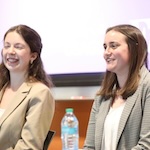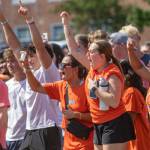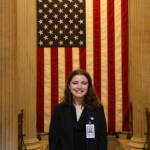

On Sept. 22-23, Gettysburg College hosted the Summit on the Future, bringing together more than 200 key stakeholders for an interactive and impactful learning experience focused on the future of the institution and its promise of providing A Consequential Education to every student.
Through various engaging activities and events on campus, the Summit on the Future featured the College’s greatest champions and philanthropic supporters interacting with College leadership, including President Bob Iuliano and members of the Board of Trustees and President’s Council; faculty; students; College administrators and program directors; and others who are committed to the College’s future.
Gettysburg has introduced an ambitious Strategic Direction that will align institutional priorities to ensure we are providing students with an education in the liberal arts and sciences that is relevant, meaningful, and amplifies the most transformational aspects of Gettysburg’s undergraduate experience. The two-day Summit featured activities designed to take attendees on a journey through this new vision.
Take a look inside this historic event:
Day 1: Our Promise of A Consequential Education
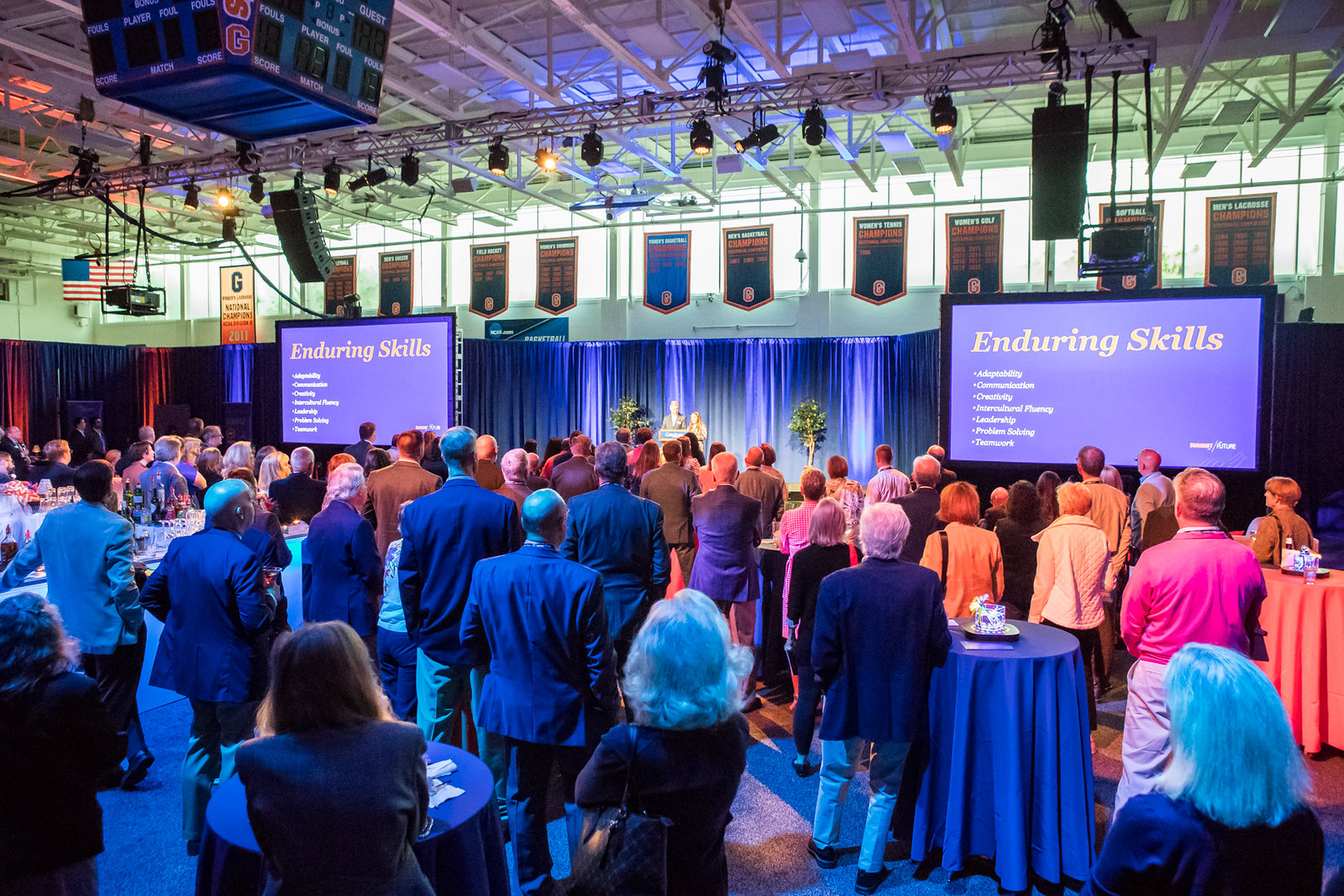
Since its founding in 1832, Gettysburg College has promised every student A Consequential Education—one that gives them greater insight into who they are, what they want to accomplish, and how they will define and lead their own consequential life. Friday’s opening sessions explored the three elements that comprise A Consequential Education: our people, our place, and our approach, also known as the Gettysburg Approach.
Gettysburg’s consequential location nestled within south-central Pennsylvania—and within a short drive of several major cities of influence, including Harrisburg, Philadelphia, Baltimore, and Washington, D.C.—was the focus of a panel discussion featuring representatives from the Garthwait Leadership Center, History Department, Civil War Institute, Eisenhower Institute, Center for Career Engagement, and Center for Public Service. The panel brought to life the unique and collaborative offerings within their organizations that help students take advantage of Gettysburg’s connections to these larger areas, as well as engaging within the local community itself. This opening event sparked a lively discussion between staff and guests that would set the tone for what proved to be a dynamic and informative weekend.
“We seek to engage your minds, hearts, and passion towards the ‘unfinished work’ of Gettysburg College,” said panel moderator and Garthwait Leadership Center Director Paul Miller. “My hope is that this time sparks your curiosity, creates some connection from your experience to that of current students, and catalyzes your energy for learning this weekend.”
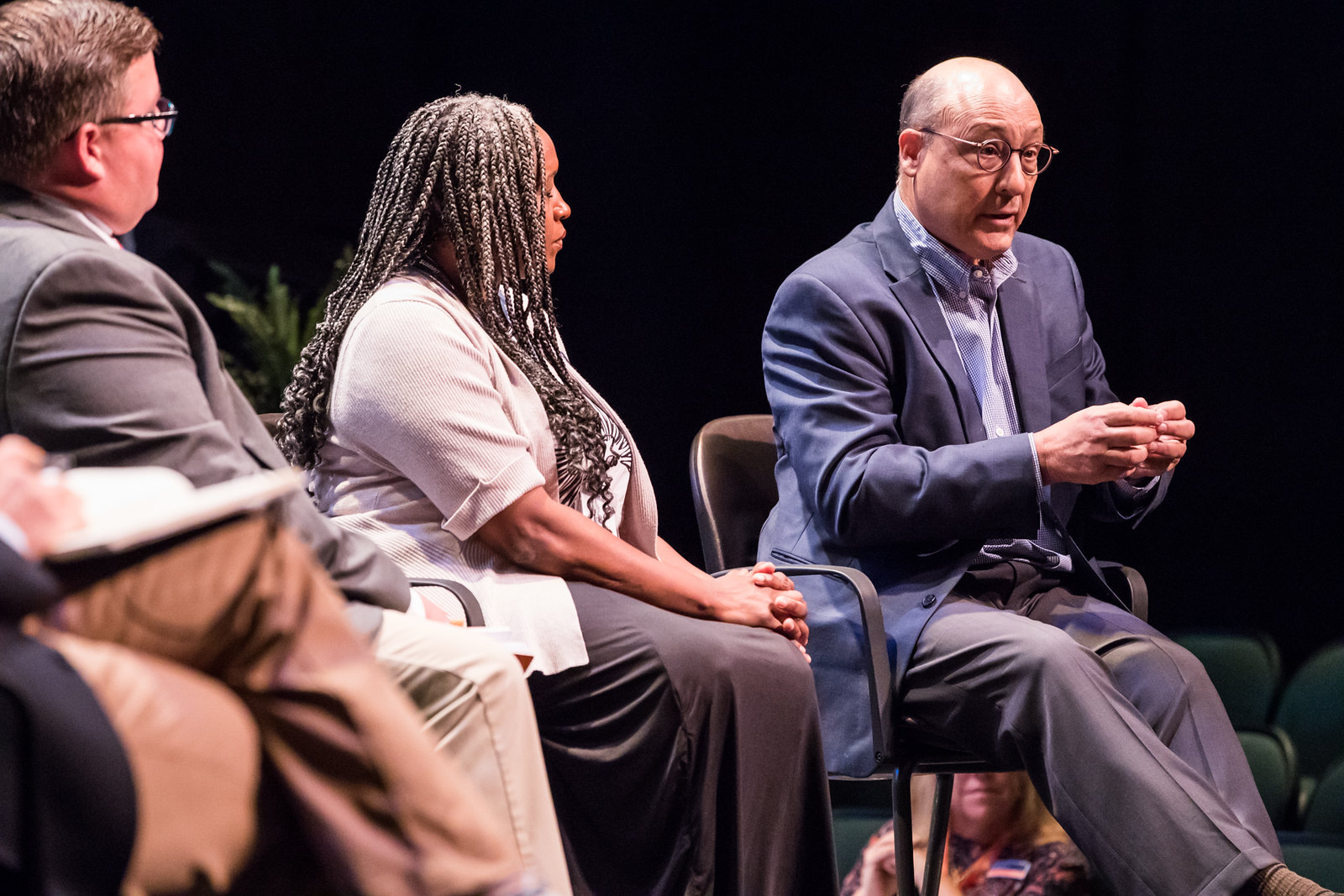
With the help of dedicated faculty, staff, and alumni, Gettysburg has continued to carry out its educational promise to its students. Summit attendees engaged with these members of our community during exploratory sessions on curricular and co-curricular experiences Friday afternoon in various campus classrooms and venues including the newly opened Donna Jean Brogan Center for Quantitative Learning in Glatfelter Hall; the virtual cadaver lab in the Science Center; Special Collections in Musselman Library; student activities and programs housed within the Janet Morgan Riggs Student Center such as the Garthwait Leadership Center; the John F. Jaeger Center for Athletics, Recreation, and Fitness; and the Innovation and Creativity Lab in the West Building.
The opening day of the Summit concluded with an in-depth look at Gettysburg’s unique approach to education—the Gettysburg Approach—during a roving dinner Friday evening in Bream Gym.
“The goal of the Gettysburg Approach is to provide every student with a breadth and depth of knowledge and set of enduring skills that will support them throughout the entirety of their life,” said Board Chair Lauren Wise Bright ’90, the chief legal officer of the Bill & Melinda Gates Foundation.
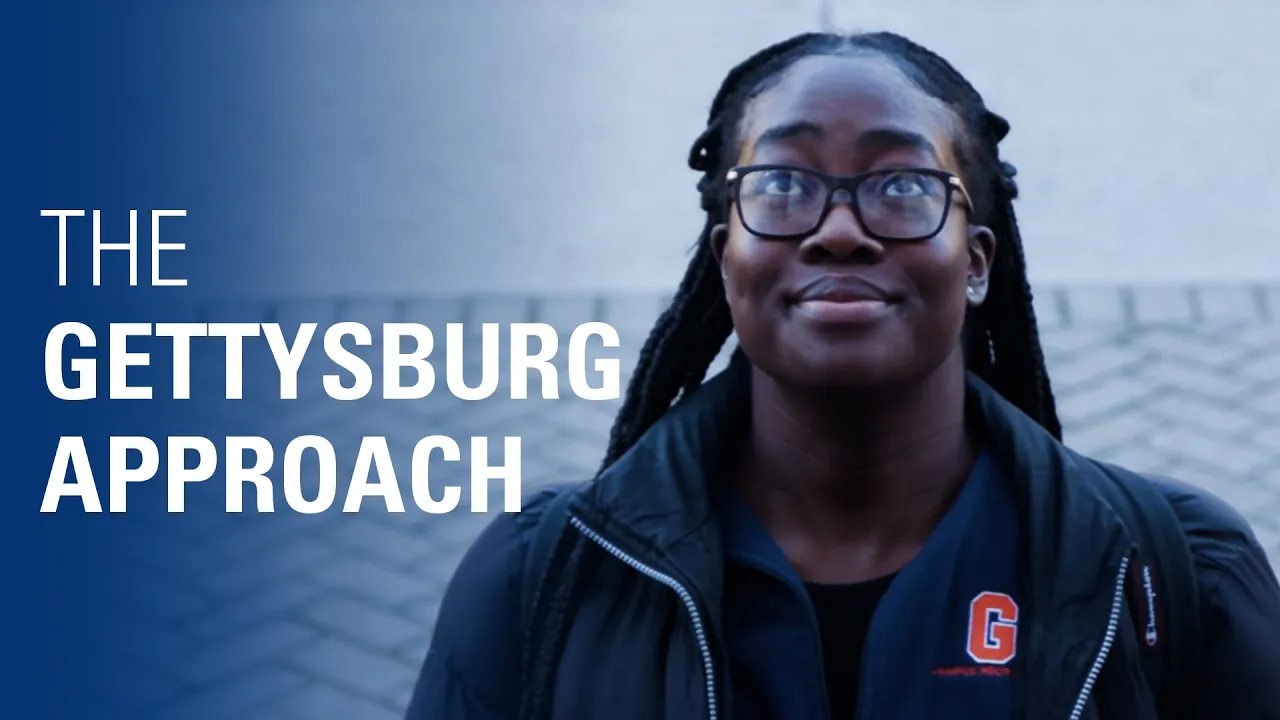
Vice President of Enrollment and Educational Services Carey Thompson and Chief Communications and Marketing Officer Jamie Yates then delivered the keynote presentation about the Gettysburg Approach, which emphasized the College’s response to the Preparedness Gap. This gap, which was identified by American Association of Colleges and Universities (AAC&U) in a recent study, is a divide between the importance employers place on specific skills in the workforce and their assessment of a college graduate’s readiness to apply these skills effectively. According to the study, only half of employers believe today’s college graduates possess the necessary skills to be promoted beyond an entry level position.
Thompson and Yates stressed that two anchors underpin the Gettysburg Approach—knowledge and enduring skills—and these are reinforced by Personal Advising Teams and practiced and deepened within five thematic Guided Pathways, which were recently featured in an article published by Inside Higher Education. Altogether, the Gettysburg Approach ensures our graduates are ready and able to tackle any challenges ahead in their personal and professional lives. Following the presentation, guests met with and heard from faculty, staff, students, and alumni at four interactive stations focused on each of these elements with real-life examples of how the Gettysburg Approach is making an impact.
“We are confident in our ability to deliver on this approach,” Thompson stated. “In fact, employers who hire Gettysburg graduates repeatedly tell us that our graduates possess and outperform their peers in what employers define as must-have career skills. The developing and deepening of enduring skills is already a strength of Gettysburg. We want to double down on it.”
Day 2: How We Will Live Our Promise
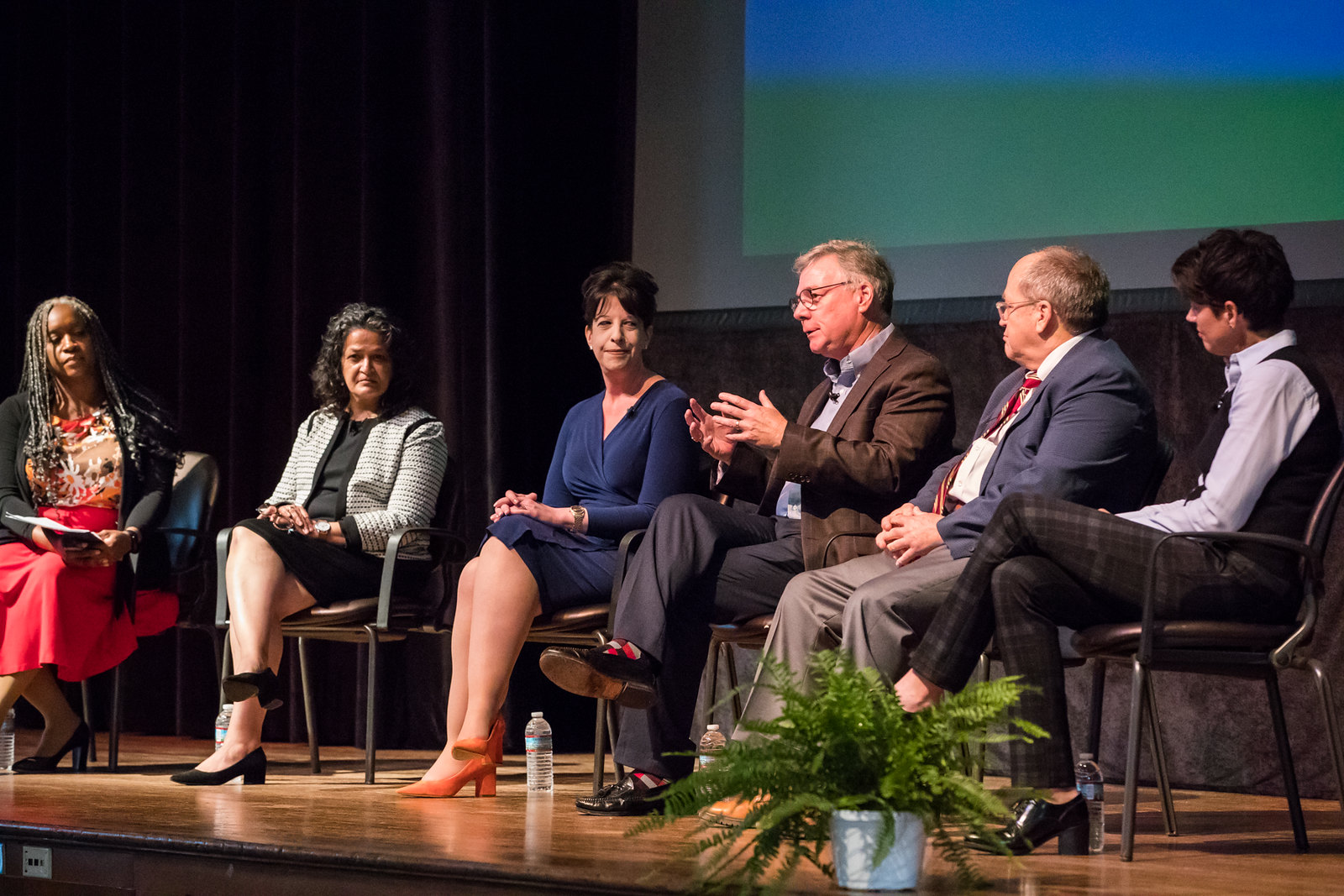
While Friday’s focus was on A Consequential Education in practice through the Gettysburg Approach, Saturday’s programming looked at the Four Areas of Focus in the College’s new Strategic Direction:
- Academic Excellence
- A Transformational and Integrated Student Experience
- A Culture of Belonging and Wellness
- Institutional Effectiveness
Together, these four areas will elevate and connect all aspects of the student experience and provide opportunities for constituents to rally around students through experiential learning experiences, philanthropy, professional mentorship, and networking.
Our commitment to a rigorous and contemporary liberal arts and sciences education has never wavered and it grows stronger with dynamic changes to the core curriculum and the passion of our top-notch faculty. Associate Provost for Academic Affairs Jeanne Hamming and Associate Dean for Student Success Hannah Sollenberger ’99, representing the Center for Student Success, held an information/Q&A session to discuss the College’s renewed focus on student advising and how close faculty-student mentorship is a staple of a Gettysburg education.
Later Saturday morning, Summit attendees had the option to attend a wide range of open-house sessions to engage with a variety of campus programs and organizations associated with a transformational and integrated student experience and a culture of belonging and wellness.
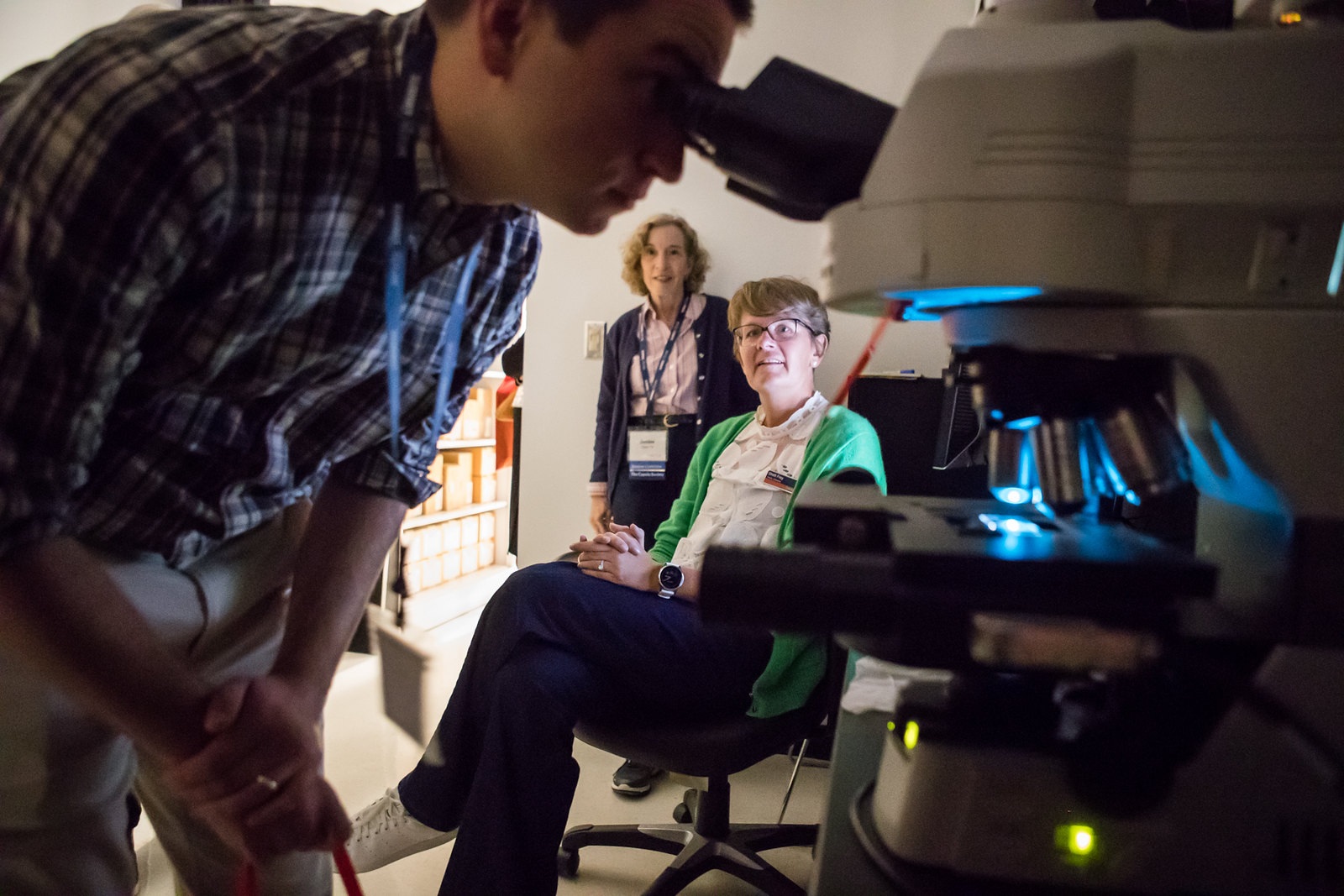
With ample opportunities for experiential learning and guidance, the Guided Pathways and Personal Advising Teams serve key roles in helping students navigate the complexities of finding their direction as undergraduates—from pursuing civic engagement with the Eisenhower Institute to community service with the Center for Public Service to traveling internationally with the Center for Global Education. These offices and more shared the varied opportunities across campus for our students to integrate their experiences.
Creating a culture where all Gettysburgians can be full members of our community and be empowered to contribute in ways that strengthen our collective perspective and understanding is critical for the vision ahead. The Office of International Student Services, Office of Multicultural Engagement, Counseling and Wellness Services, and Campus Recreation showcased a range of inclusive programming that help students be engaged members of our campus community.
The Impact of Philanthropy and Institutional Effectiveness
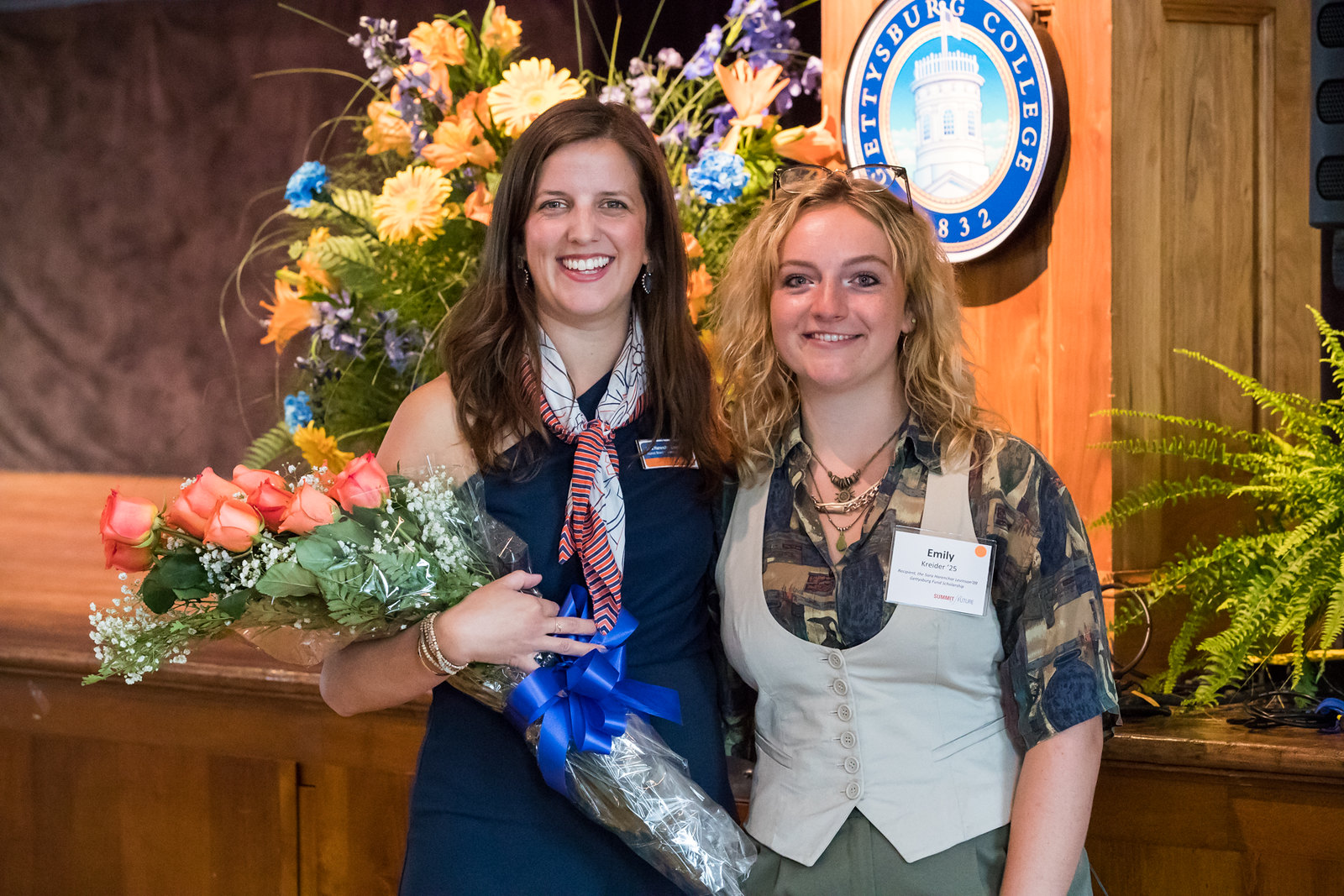
Saturday’s focus turned to the impact financial support can have on the institution’s educational goals. Gettysburg Alumni Board member Sara Harenchar Levinson ’09, vice president of business development at Prometric, spoke about the impact alumni can have on students now and into the future by giving back to their alma mater. Citing her cherished student experience and the support she received during her four years on campus and beyond, Levinson created a Gettysburg Fund Named Scholarship. That scholarship was awarded to environmental studies major Emily Kreider ’25, who also addressed the gathering.
“Gettysburg and this community helped make me the person standing in front of you today,” Levinson said. “If we continue this legacy of giving—by creating a scholarship, by empowering a professorship, by supporting a program, by giving back—we can change someone's life. My supporters believed in me, and I believe in the students here at Gettysburg College.”
The luncheon also recognized Barry ’65 and Barbara ’65 Shaw for their exemplary support of the Gettysburg Fund over nearly six decades. They were honored with the inaugural F. Barry ’65 & Barbara Wenger Shaw ’65 Award for Exceptional Philanthropic Leadership, which included a gift of a watercolor painting of Pennsylvania Hall, created by MaryAnna Coleman ’10.
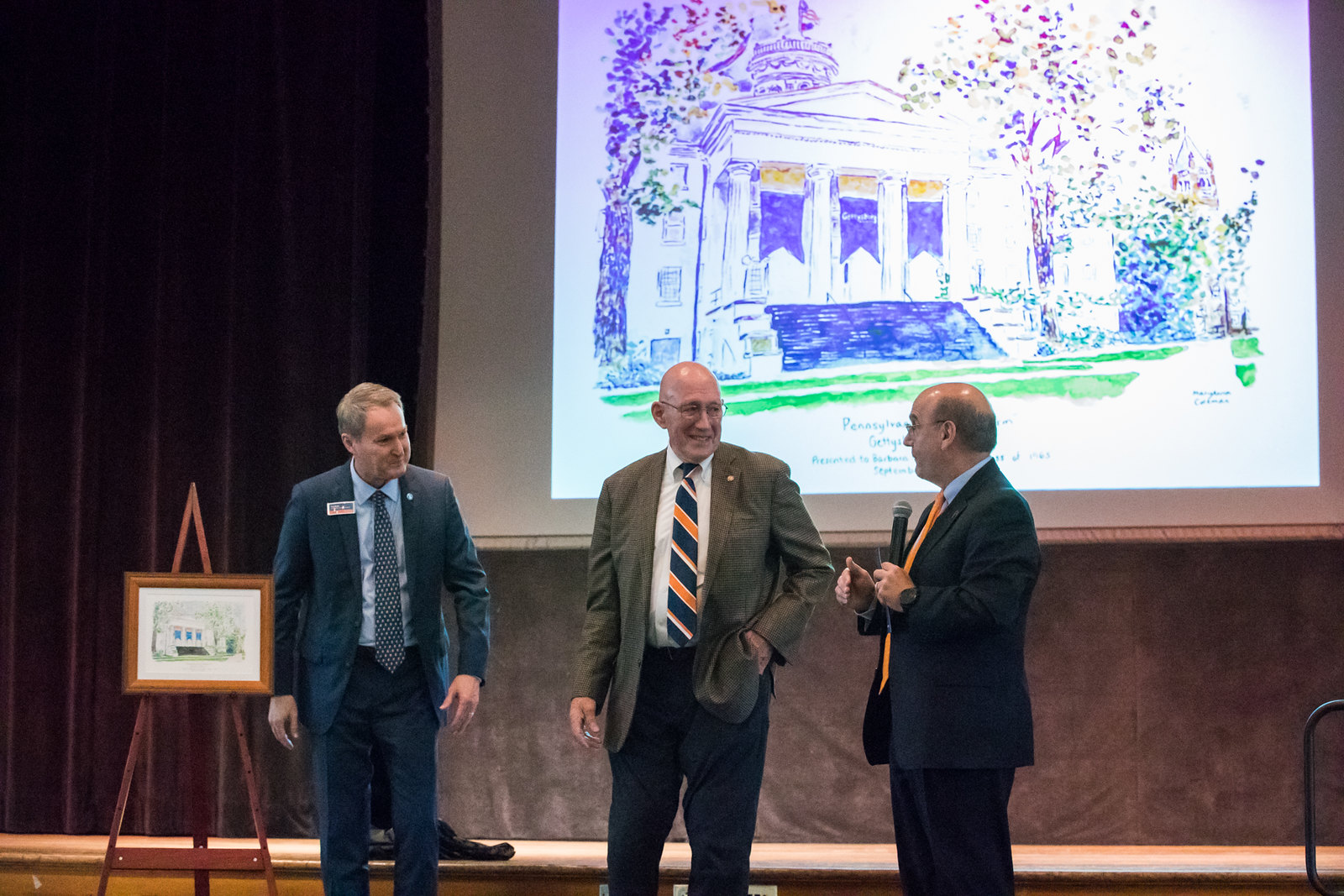
Vice President of Research and Senior Advisor to the President of the AAC&U Ashley Finley then delivered Saturday’s inspiring keynote presentation in the College Union Building Ballroom, discussing the future of higher education and the workforce, and Gettysburg’s innovative response through the Gettysburg Approach.
Finley showed the crowd facts and figures on what employers value in terms of broad skills and detailing the workforce preparedness gap between the skills employers desire and college graduates’ abilities. Dr. Finley stressed that Gettysburg was out in front of many of its peer institutions in its proactiveness in dealing with rising demands and challenges in higher education, including changing demographics and financial instability.
“One of higher education’s greatest pressure points is the need for colleges to innovate in ways that effectively prepare students to succeed as professionals and citizens, while also being authentic to their institutional mission,” Finley said. “The Gettysburg Approach has nailed this balance. I’m excited to share this incredible model with other schools around the country.”
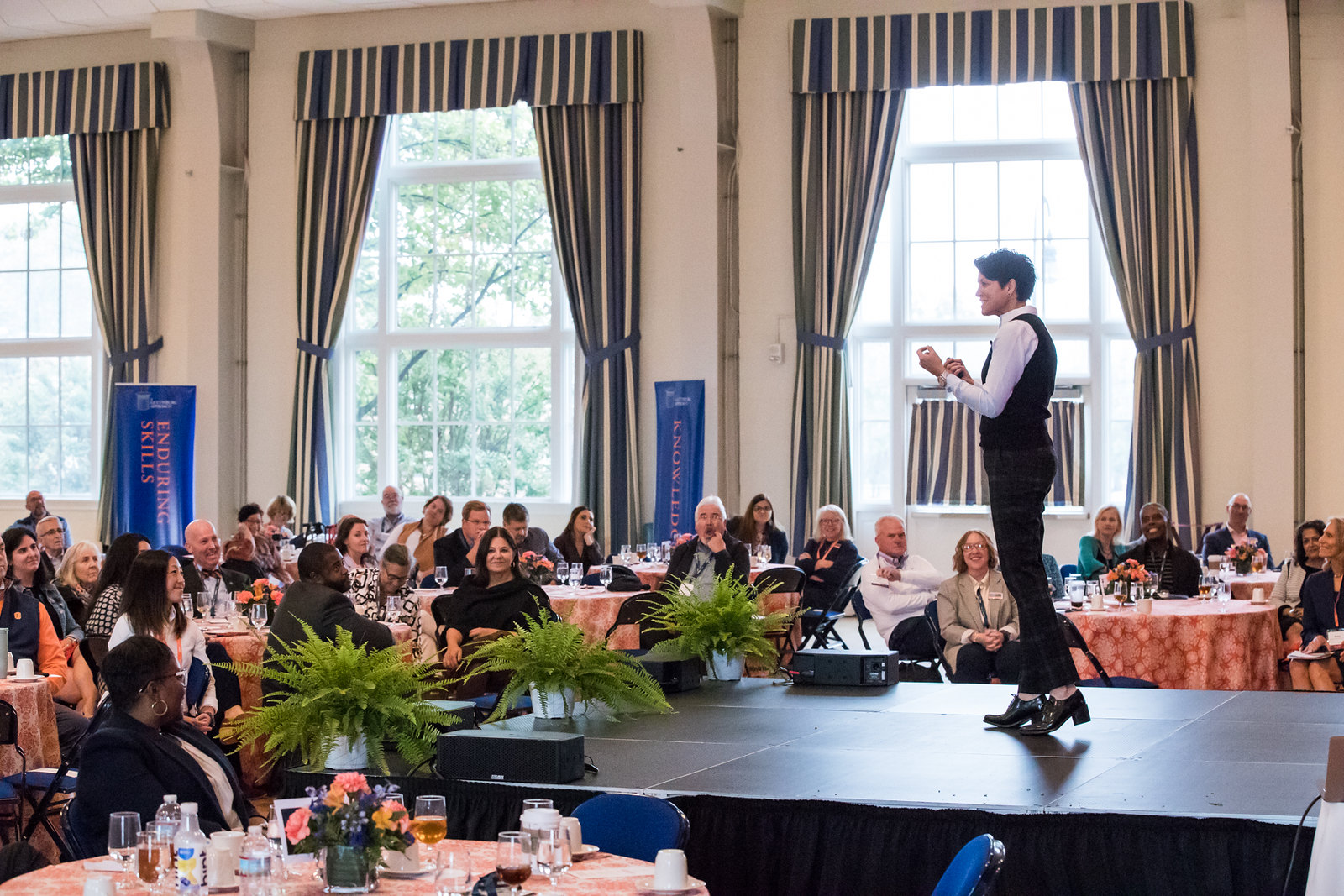
Building upon Finley’s presentation, members of the President’s Council, including Thompson, Vice President of College Life Anne Ehrlich, Provost Jamila Bookwala, and Interim Chief Financial Officer Mike Coyne joined Finley and Eisenhower Institute Executive Director Tracie Potts, who served as moderator, for a panel discussion about Gettysburg’s response to this moment of change.
The panel’s theme centered on institutional effectiveness, the fourth Area of Focus in the College’s Strategic Direction. Garthwait Leadership Center Executive Director Andy Hughes closed the session by facilitating an interactive dialogue with attendees on the College’s ambitious vision, during which guests asked questions and provided their own feedback and ideas to the members of the panel.
An Evening of Vision and Promise
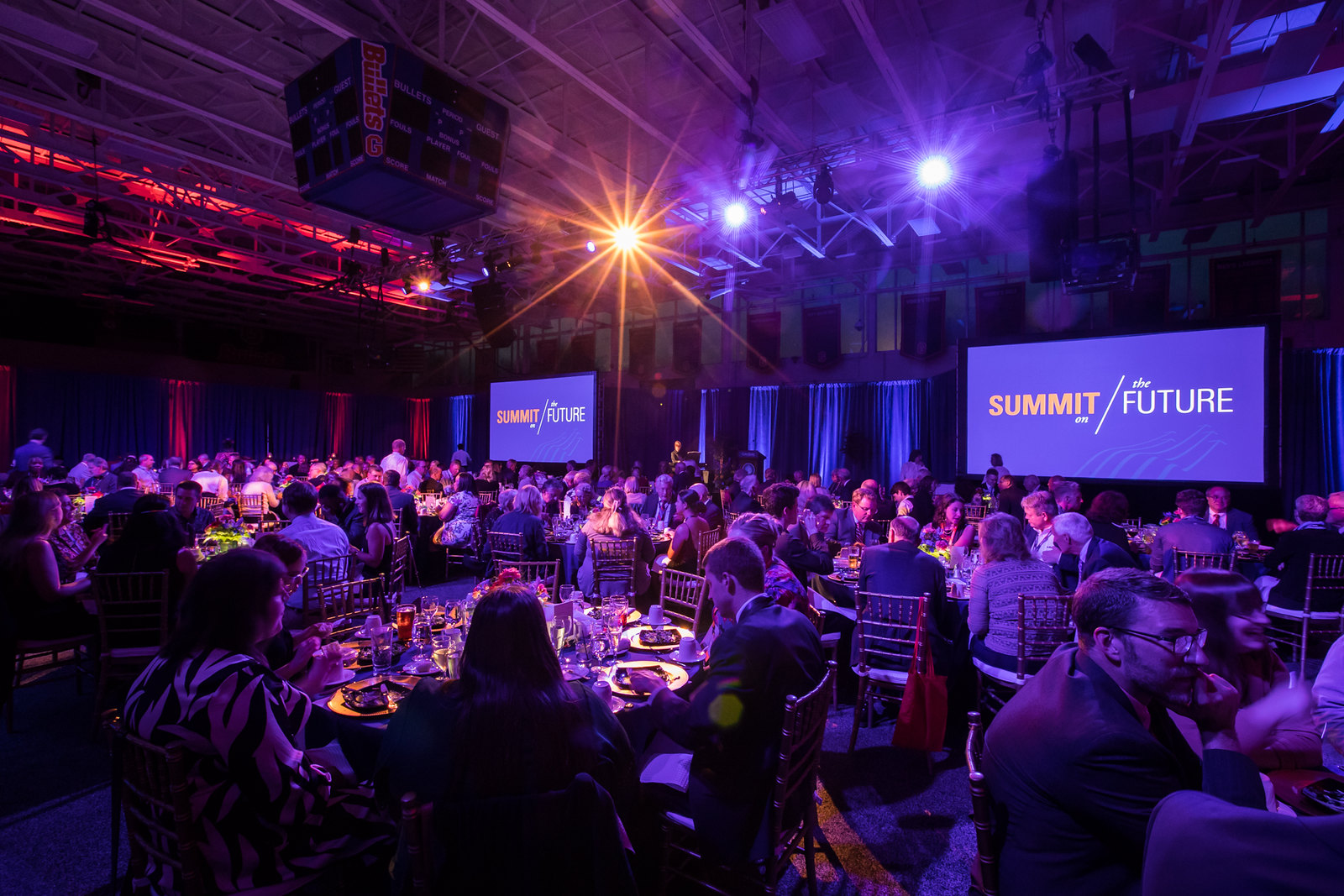
A formal dinner and program Saturday evening inside a transformed Bream Gym wrapped up an exhilarating two days of rewarding experiences at the Summit on the Future. Drawing a parallel to the College community’s rally to move 250,000 books to the newly built Musselman Library in 1981, Bright highlighted the path forward that each member of the Gettysburg College community must take together to transform this new ambitious vision into reality.
“Our College can achieve big things when we each believe in the power of us,” said Bright. “Gettysburg is the thread that binds us together. As Gettysburgians, we step forward for one another. I hope this weekend inspires you to step forward for today’s students and those yet to come. I hope that you choose to get involved and to find ways to do so that are most meaningful to you.”
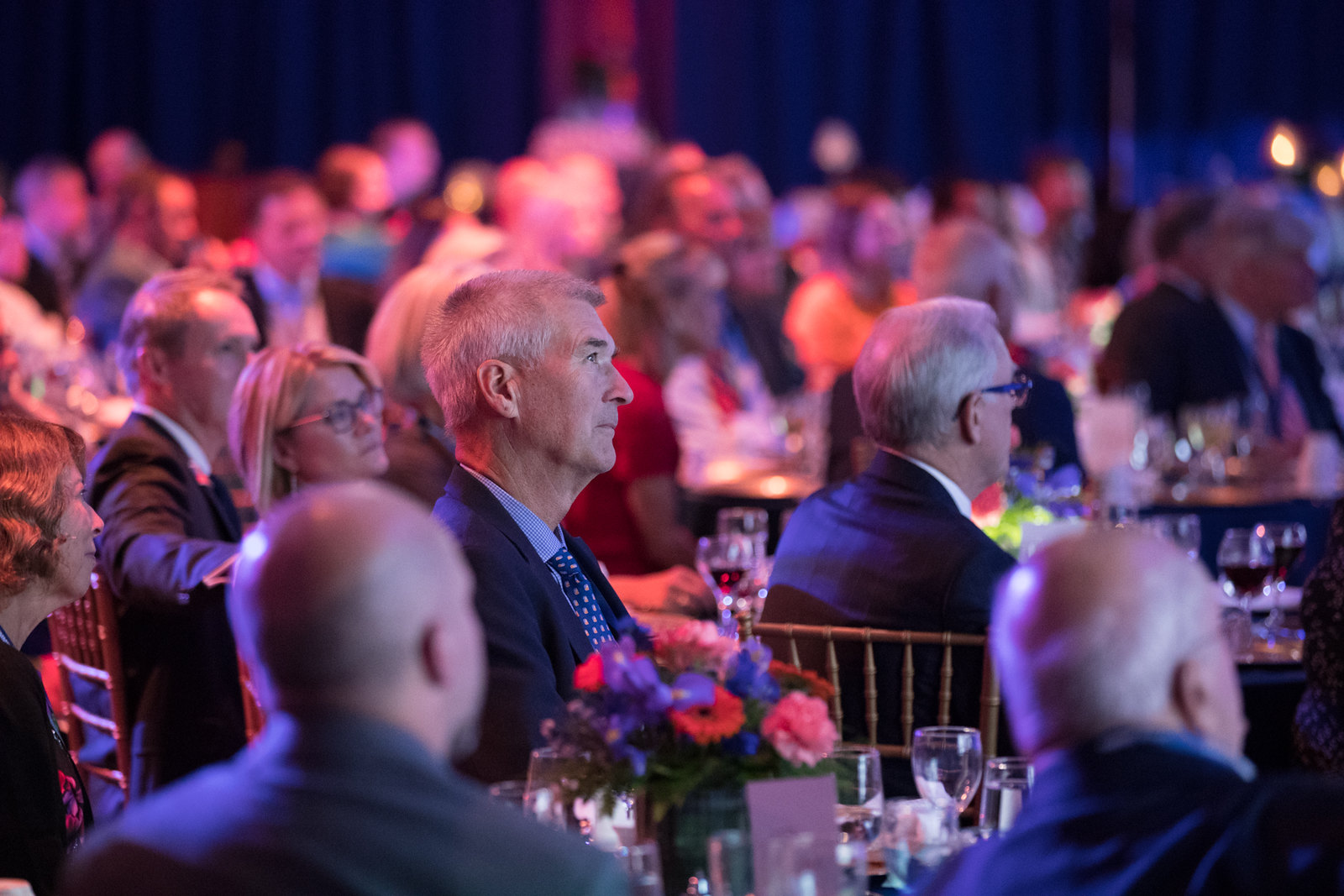
“Our College can achieve big things when we each believe in the power of us. Gettysburg is the thread that binds us together. As Gettysburgians, we step forward for one another.”
– Board of Trustee Chair Lauren Wise Bright ’90
Rich Kampert ’10, vice president in the investment banking division at Goldman Sachs, spoke next about the knowledge and skills he gained at Gettysburg College that prepared him to lead his own consequential life. Kampert, who engaged in multiple professional experiences courtesy of the connections and programs he found at Gettysburg, pointed to the encouragement and advocacy he received from faculty and staff advisors as the driving forces behind his undergraduate and professional success.
“At the end of the day, it doesn’t come down to the reputations and resources—it comes down to the individual people and their connection to the school,” said Kampert. “If each of us here tonight can initiate and get involved with one additional career experience like this for our students, then there is uncapped potential for how many future Gettysburgians can benefit from these efforts.”
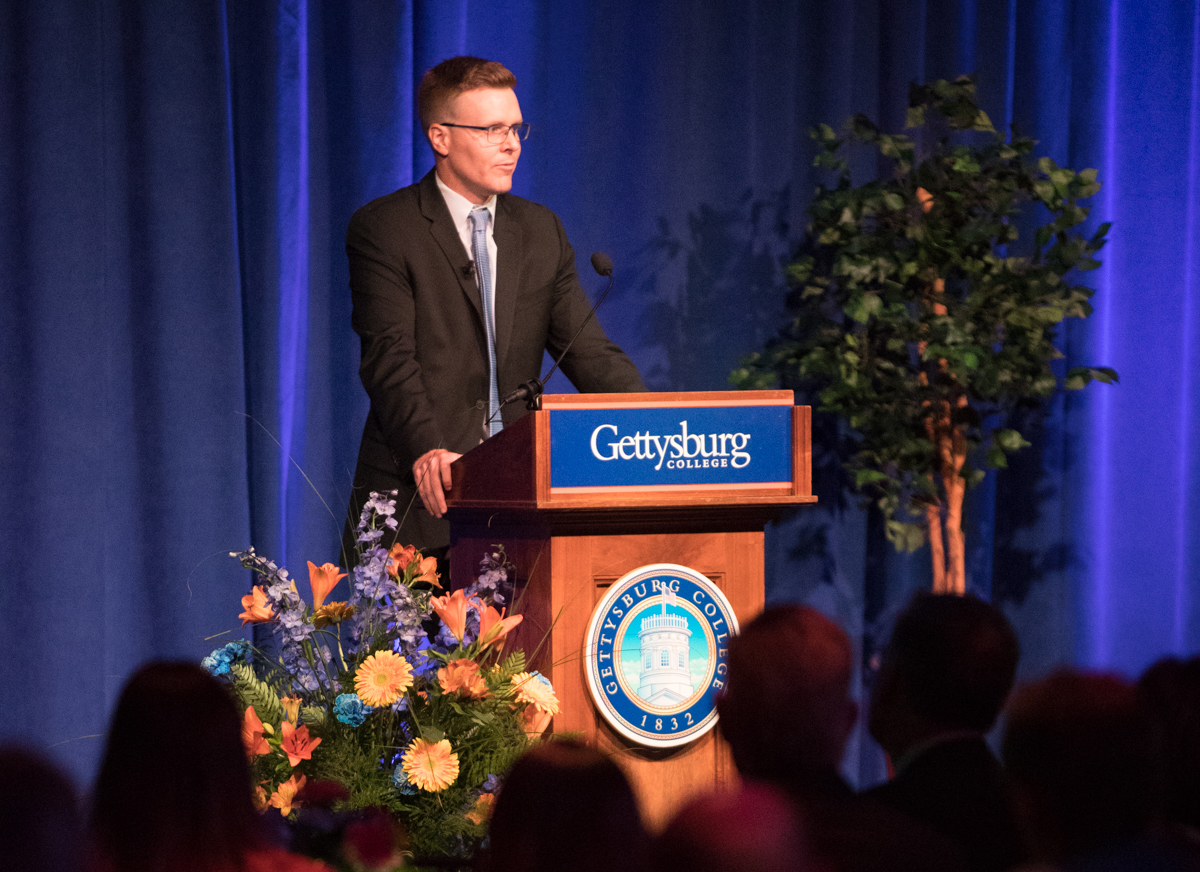
President Iuliano concluded the momentous weekend, taking center stage for the Summit on the Future Address.
“Gettysburg College has endured precisely because the education we provide here is enduring,” said Iuliano. “Together, we have an eternal promise to keep, and that is to deliver A Consequential Education to every student. The shape of that Promise—delivered to students since our founding in 1832—has appropriately changed over time in response to changing circumstances for each generation of our graduates.”
Amidst those remarks came a historic announcement, detailing the largest commitment by a living Gettysburg College donor. Iuliano informed the attentive audience of a $10 million commitment by Daria Lo Presti Wallach ’76 to support the College’s bold and ambitious vision of the future.
“It’s an endorsement of what her Gettysburg education has meant to her,” noted Iuliano, who also announced that Wallach would serve as co-chair of the College’s new comprehensive campaign—now in its leadership phase—alongside Trustee Bill Heyman ’74, P’13. “Based on my conversations with Daria, I can also say with confidence that it is an endorsement of the work we are undertaking together.”
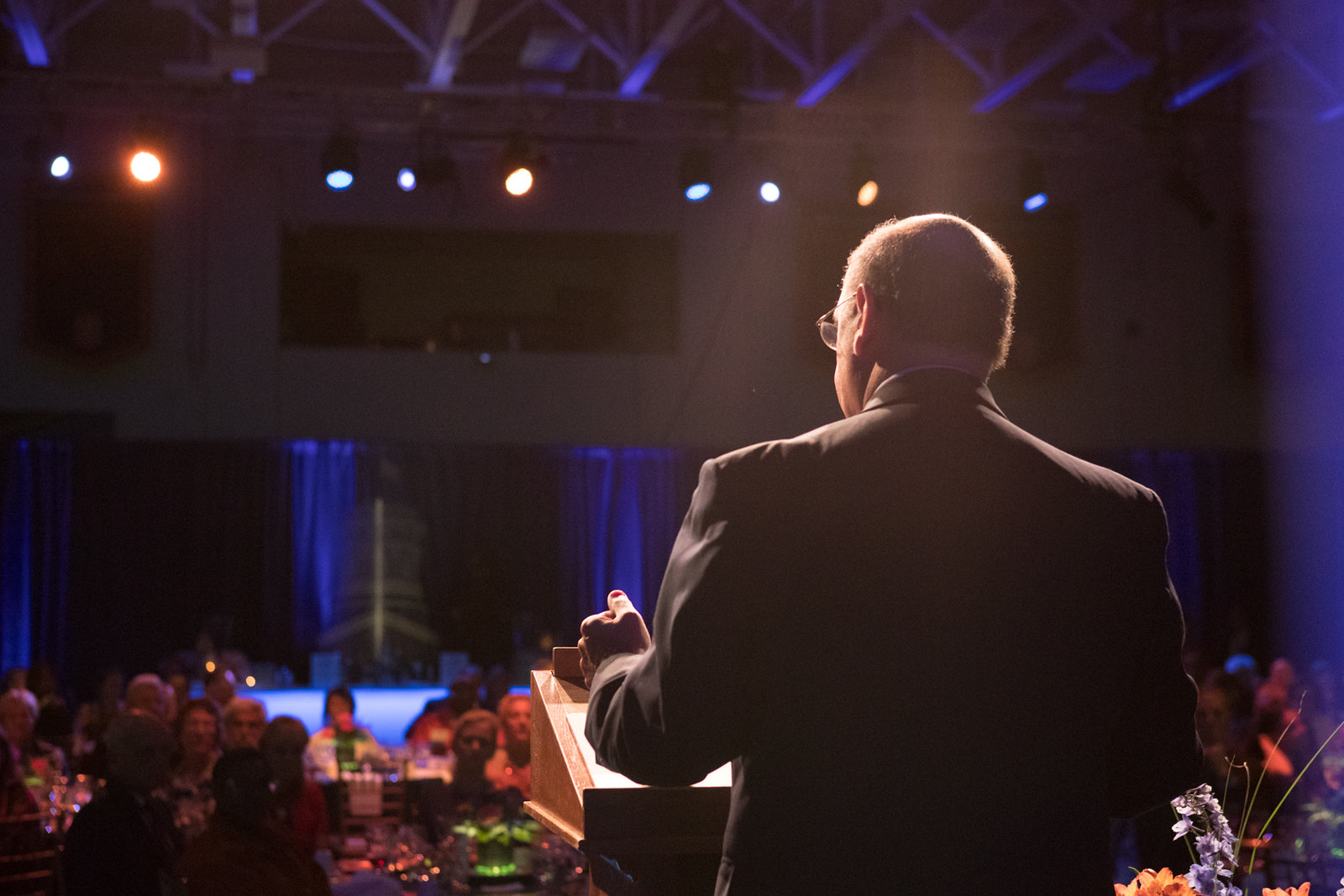
Iuliano concluded the Summit on the Future with four requests to those gathered and those within their spheres of influence:
- Support a Guided Pathways experience by making a gift.
- Express interest in being an Alumni Mentor
- Offer a career experience, such as an internship, externship, and job shadowing opportunity.
- Galvanize the Gettysburg Network by getting involved and inspiring your friends to join you.
Iuliano emphasized that, throughout its esteemed history, Gettysburg has not responded to change as an institution alone—it has done so together, utilizing its committed network for support and resources to continue its evolution.
“Together,” Iuliano said, “we can usher this great College into an inspiring third century. Let us commit tonight to Living Our Promise and making our vision a reality.”
Learn more about our promise of providing A Consequential Education to our students.

